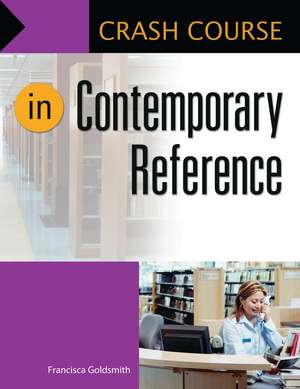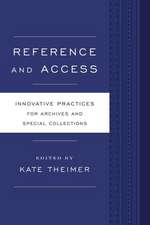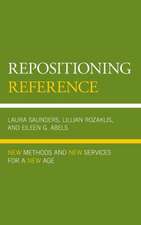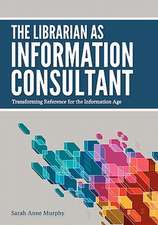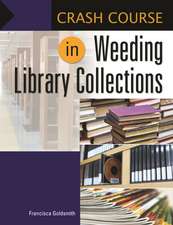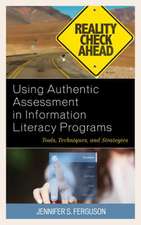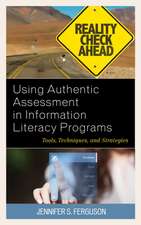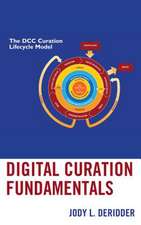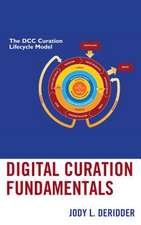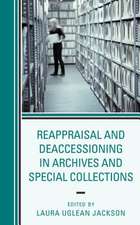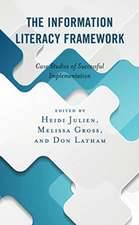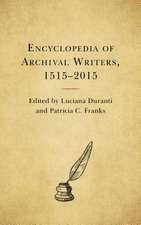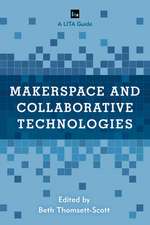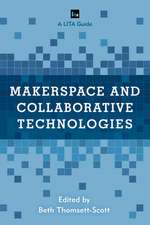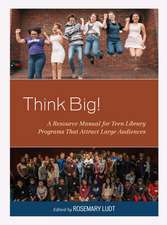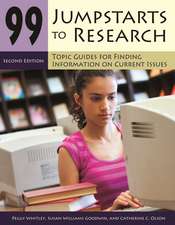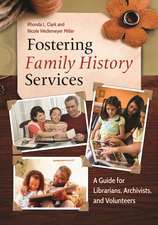Crash Course in Contemporary Reference: Crash Course
Autor Francisca Goldsmithen Limba Engleză Paperback – 30 oct 2016 – vârsta până la 17 ani
Din seria Crash Course
- 5%
 Preț: 167.80 lei
Preț: 167.80 lei - 18%
 Preț: 264.69 lei
Preț: 264.69 lei - 22%
 Preț: 259.07 lei
Preț: 259.07 lei - 21%
 Preț: 262.54 lei
Preț: 262.54 lei - 22%
 Preț: 258.96 lei
Preț: 258.96 lei - 22%
 Preț: 259.34 lei
Preț: 259.34 lei - 18%
 Preț: 264.99 lei
Preț: 264.99 lei - 22%
 Preț: 258.89 lei
Preț: 258.89 lei - 22%
 Preț: 257.97 lei
Preț: 257.97 lei - 21%
 Preț: 263.48 lei
Preț: 263.48 lei - 22%
 Preț: 259.07 lei
Preț: 259.07 lei - 33%
 Preț: 198.22 lei
Preț: 198.22 lei - 22%
 Preț: 260.25 lei
Preț: 260.25 lei - 32%
 Preț: 257.03 lei
Preț: 257.03 lei - 31%
 Preț: 258.42 lei
Preț: 258.42 lei - 31%
 Preț: 259.34 lei
Preț: 259.34 lei - 31%
 Preț: 259.34 lei
Preț: 259.34 lei - 17%
 Preț: 266.00 lei
Preț: 266.00 lei - 17%
 Preț: 268.94 lei
Preț: 268.94 lei - 17%
 Preț: 270.13 lei
Preț: 270.13 lei - 31%
 Preț: 261.08 lei
Preț: 261.08 lei - 18%
 Preț: 265.06 lei
Preț: 265.06 lei - 17%
 Preț: 266.45 lei
Preț: 266.45 lei - 17%
 Preț: 269.20 lei
Preț: 269.20 lei - 17%
 Preț: 266.00 lei
Preț: 266.00 lei - 17%
 Preț: 266.91 lei
Preț: 266.91 lei - 18%
 Preț: 263.69 lei
Preț: 263.69 lei - 18%
 Preț: 265.06 lei
Preț: 265.06 lei - 18%
 Preț: 265.06 lei
Preț: 265.06 lei - 5%
 Preț: 193.57 lei
Preț: 193.57 lei -
 Preț: 204.25 lei
Preț: 204.25 lei -
 Preț: 204.44 lei
Preț: 204.44 lei -
 Preț: 204.44 lei
Preț: 204.44 lei -
 Preț: 204.44 lei
Preț: 204.44 lei -
 Preț: 58.35 lei
Preț: 58.35 lei - 22%
 Preț: 266.00 lei
Preț: 266.00 lei
Preț: 266.91 lei
Preț vechi: 322.79 lei
-17% Nou
Puncte Express: 400
Preț estimativ în valută:
51.08€ • 53.00$ • 42.69£
51.08€ • 53.00$ • 42.69£
Carte tipărită la comandă
Livrare economică 17-31 martie
Preluare comenzi: 021 569.72.76
Specificații
ISBN-13: 9781440844812
ISBN-10: 144084481X
Pagini: 196
Dimensiuni: 216 x 279 mm
Greutate: 0.5 kg
Editura: Bloomsbury Publishing
Colecția Libraries Unlimited
Seria Crash Course
Locul publicării:New York, United States
ISBN-10: 144084481X
Pagini: 196
Dimensiuni: 216 x 279 mm
Greutate: 0.5 kg
Editura: Bloomsbury Publishing
Colecția Libraries Unlimited
Seria Crash Course
Locul publicării:New York, United States
Caracteristici
Provides current information that will help librarians keep abreast of new resources, evolving patron needs and interests, and emerging best practices
Notă biografică
Francisca Goldsmith, MLIS, designs and presents curricula in a number of library and information service areas, including contemporary reference methods.
Cuprins
IntroductionChapter 1-An Overview of Professional Library Reference ServiceWhat Makes Reference Work a Professional Job?Reference Work Adds Library Value to Your CommunityReference Service as Authority-BasedReference Service as Lifelong Learning SupportReference Service as Supporting Civic EngagementRecognizing Formal Reference QuestionsResponding to Reference NeedsCommunicationResource AwarenessQuestion-Specific EvaluationJust-in-Time TeachingPassive and Indirect Reference GuidanceNotesChapter 2-Communication and Reference WorkCommunication Is DynamicTake Responsibility for Good CommunicationTips for Optimizing Successful CommunicationThe Reference InterviewIdentifying the Information Gap: Establishing the QuestionThe Power of Open-Ended QuestionsClarifying What Is Being SaidVerifyIdentifying Contextual DetailsCompleting the InterviewFollow-UpReferring a Question"No" Should Never Be the Final AnswerBefore Making a ReferralTypes of ReferralProviding the Results of a Referral, Including an Interlibrary LoanPersonalities and Behavioral ConsiderationsRUSA Guidelines for Behavioral PerformanceGuidelines for Specific Age DemographicsGuidelines for Specific Subject Areas of InquiryHandling Communication ChallengesLinguistic ChallengesCommunication Challenges Arising from Minimized Physical or Intellectual CapacitiesA Not So Final Word on CommunicationNotesChapter 3-Professional Ethics of Reference ServiceProfessional Codes of EthicsALA's Code of EthicsEthics and Reference Services to Special PopulationsEthical Reference PracticesUseful Resource Organization Is an Ethical MatterEquitable Service PoliciesEquitable AccessAccurate, Unbiased, and Courteous Responses to All RequestsIntellectual FreedomPrivacyConfidentialityRespect for Intellectual Property RightsTreatment of CoworkersDistinguishing between Personal Convictions and Professional DutiesPracticing Professional Development and Supporting It in OthersReference Services and the LawChildren's Internet Protection ActThe Current Status of the USA PATRIOT ActLaws and Ethics with Mutually Supported EndsDisability as a Legal StatusCopyright and Fair UseOther Ethical Codes of Interest to Reference StaffNotesChapter 4-Building and Maintaining a Reference CollectionKnow Your CommunityBudgetReference Sources Should Include a Variety of Format TypesPrint and Bound Materials, Including Books and PamphletsSubscription DatabasesMultimedia FormatsMake Use of Standard Selection AidsStrive for Balance of Subject Area DevelopmentIdentifying Experts as Development ResourcesMaintain the Reference Collection, Not Necessarily Its Material PiecesEvaluating Reference SourcesPrintDatabasesThe Open WebStanding Orders and SubscriptionsMultimediaCommunity Agencies and ExpertsNotesChapter 5-Organizing Print and Electronic Reference SourcesUnderstanding Organization within Traditional BooksSearching Print Reference SourcesBibliographiesIndexes and AbstractsDictionariesEncyclopediasAlmanacsDirectoriesHandbooks and ManualsAtlasesUsing Children's Nonfiction as Reference ResourcesOnline Resource StructuresDatabases Accessible through Internet ConnectionsWebsitesLocating Websites for Reference WorkFrom Analysis of the Information Need to Web Searching StructureEvaluating a Website's AuthorityResources Intended to Guide Reference Staff to More ResourcesNotesChapter 6-Library Catalogs and BibliographiesThe Online Catalog Is a DatabaseSearching the CatalogDocumentation of e-Resources in the Local CatalogUsing the Catalog as an Information Resource in ItselfOCLC WorldCatTeaching Others Efficient Use of the Library CatalogUnion CatalogsBibliographies as Information Finding AidsTrade Bibliographies: What's Available to Acquire?Subject BibliographiesWhere We Go from HereNotesChapter 7-Understanding the Role of Serials in Knowledge PublishingSerials and Reference ConcernsNewspapersMagazinesJournalsAnnualsCatalogsSubscription Databases and Periodical AccessUnderstanding EmbargoesCommercial Periodical Database Purchase DecisionsUsing Archival Serials SourcesMicroforms: Fiche, Film, and the Machines to Read ThemDigitized CollectionsBecause We Can't Know Something about EverythingNoteChapter 8-Background Information and Definitions: Encyclopedias and DictionariesEncyclopediasGeneral Commercial Encyclopedias for AdultsWikipediaGeneral Encyclopedias for Younger Teens and ChildrenSubject EncyclopediasDictionaries and Usage Guides That Treat English and Other LanguagesThe Oxford English Dictionary (OED)Other Authoritative English Language DictionariesDictionaries Documenting Other LanguagesFormal English Usage GuidanceDictionaries for ChildrenSubject Dictionaries and Subject ThesauriWhere We Are Going NextNotesChapter 9-Finding Facts Fast: Ready ReferenceData Traditionally Delivered through General AlmanacsDirectoriesTelephone DirectoriesBusiness DirectoriesLocating Literary QuotationsHandbooks and Manuals for Quick FactsFacts about Countries and CulturesMaps and Giving DirectionsStatistics and Conversion TablesAuthoritative Breaking News SourcesLocal Government InformationMobile AppsNotesChapter 10-Using the Web to Guide Your Community to Authoritative InformationThe Web as a Reference ToolFinding and Using Free Web SourcesThe Web Is a Fluid CollectionSearch EnginesConstructing a Good SearchEvaluating Search ResultsSearching for Web-Based Reference SupportExperts' SitesSearching BlogsDigital Collections from World LibrariesThe Reference Section of the Library's WebsiteSeasonal ResourcesNotesChapter 11-Reference Service Delivery ModelsNew ToolsEvaluating Reference ServicesIn-House ModelsSingle-Point Service DesksRoving Reference StaffInteractive Reference Services OnlineFormal Readers AdvisoryCommunity-Based Delivery ModelsDeploying Reference Staff Outside the Library BuildingReference Staff Presence at Community EventsTaking Reference Support into the CommunityPublishing and Other Production SupportSupporting Civic Engagement through Reference ProgrammingBuilding Community Archives through CrowdsourcingNotesChapter 12-Networking and Professional DevelopmentProfessional Development TechnologiesWebinarsWeb-Based Course ParticipationE-Mail ListsUsing Professional BlogsTwitterNetworking with the Local CommunityReference Staff's Role in the Local CommunityNetworking with Other Libraries and Library StaffState Libraries, Regional Consortia, and Local SystemsProfessional Association MembershipReference Staff TrainingBeyond Formal InstructionNotesBibliographyIndexAbout the Author
